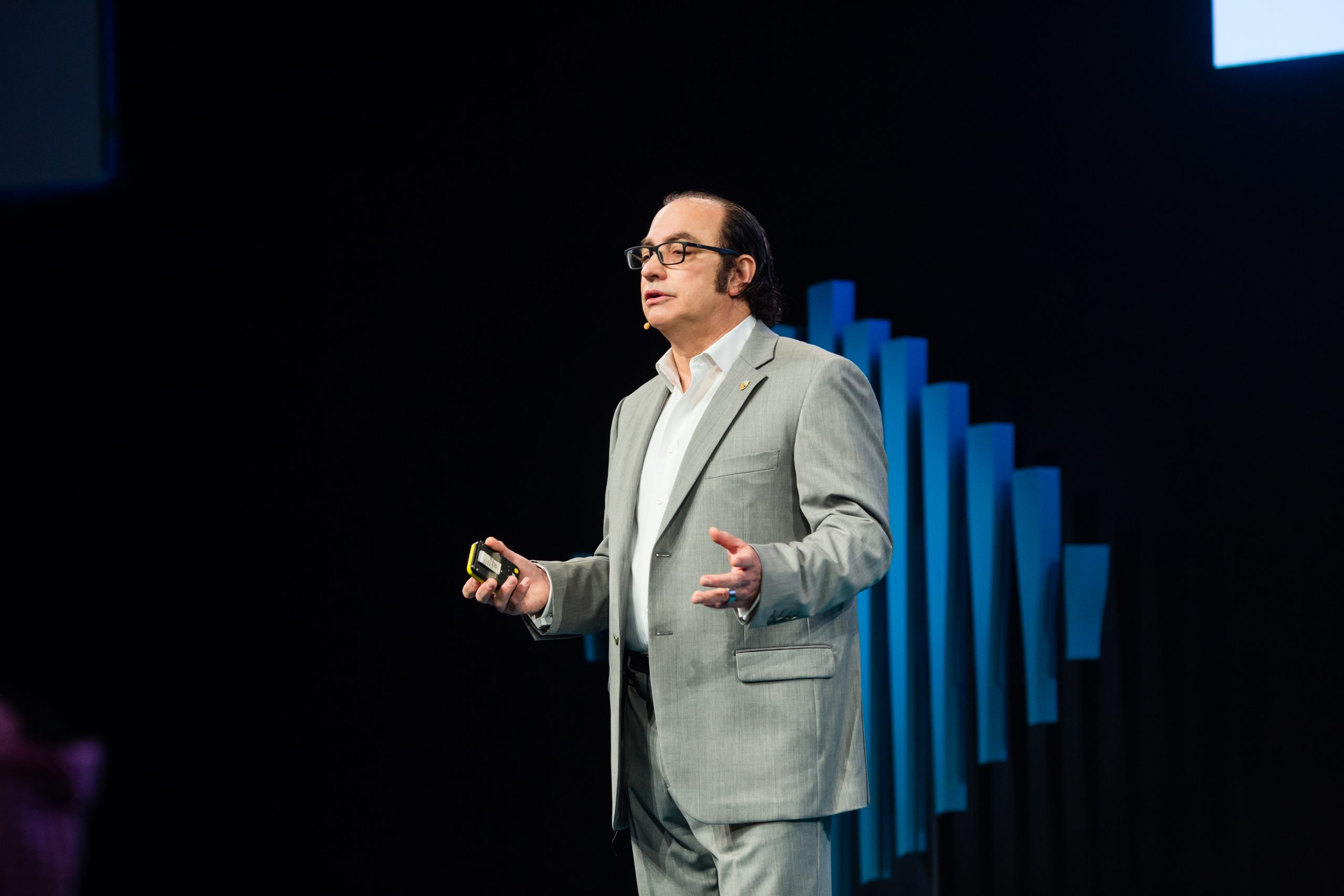Infrastructure
AI and robots augmenting our intelligence and changing our lives: Jacobstein
The question today is not whether Artificial Intelligence (AI) and robots could rule the world, but whether they should rule the world.

The question today is not whether Artificial Intelligence (AI) and robots could rule the world, but whether they should rule the world. This was the subject of AI and robotics expert Neil Jacobstein’s talk on the final day of the World Government Summit in Dubai.
A distinguished Visiting Scholar in Stanford’s Media X Program and Co-chair of the AI and Robotics track at Singularity University headquartered at the NASA Ames Research Park, Jacobstein said: “People think of AI and robotics as game changing technology but they are much more than that. They are totally disrupting the playing field that all of us are engaged in.”
Observing that artificial intelligence and robots will improve and advance society, Jacobstein stressed the importance of outlining principles in order to utilize this technology in the most ethical and responsible ways.
Some of the principles he outlined were the moral and technical obligation of human beings to properly manage the use of technology, the fact that AI should be used first to solve grand challenges and problems and improve people’s lives, and finally that responsible use of AI and robotics requires interdisciplinary education, ethics and foresights on the part of governments and organizations.
“Today, AI’s pattern recognition techniques are being used to solve business application problems. In the future,” said Jacobstein, “AI will crack a deep level of super human intelligence that hasn’t been solved yet.”
In 2015, AI startups saw a funding jump of 302% from the previous year. Major tech giants from Facebook and Google to Microsoft and IBM are today investing in AI. Just earlier this month, Microsoft acquired AI startup Swiftkey and in January, Apple acquired a San Diego start up, Emotient that specialises in creating AI software that recognizes the emotional state of a person.
“However, people’s perceptions of Artificial Intelligence and robotics vary, said Jacobstein. Some people think it is amazing and other people believe it is going to be extremely dangerous. People on both ends of the spectrum are cherry-picking the data.”
Citing the many benefits of the innovation, he pointed out there are also genuine concerns of job disruption, human identity change and risk amplification. However, the benefits of AI and robots outweigh the costs, given their potential to change lives.
“In the future, robots will go into emergency situations in place of humans, avoiding considerable risk. Take for instance the Google car that I had the opportunity to test firsthand. This is a robot that will save millions of lives. According to the WHO, 1.2 million people are killed worldwide each year due to automobile accidents, which could be avoided based on the excellent safety record of driverless cars. These will alter the face of transportation and public health on our highways.”
On the issue of trust and the perception of AI, Jacobstein mentioned that even experts such as Elon Musk and Stephen Hawking have expressed concern about the trustworthiness of AI and robotics technology. “While these concerns are valid, they must be used to develop four key areas for Research & Design (R&D) in the coming years: verification, validity and security of the technologies as well as ensuring that there are multiple ways to re-establish control.”
Artificial intelligence expert Jacobstein further explained that the “human brain hasn’t had a major upgrade in over 50,000 years. We are going to have to augment our intelligence.” He explained that AI will help us do this as it is not just better, faster and cheaper than the technology that currently exists, but is completely different. “AI will blow the roof off education by providing not just one laptop to every child but rather one personal tutor to every child, and can affect every aspect of governments and organizations.”
Noting that in 5-10 years, governments will be platforms based on how they utilize AI, he said: “We can make that platform arbitrarily smart, and leverage them to serve the people. AI will change the balance of power between small companies and big companies, and small countries and big countries.”
In his concluding remarks, Jacobstein returned to the larger challenges that AI will help us solve such as climate change, energy use and aging. However, he emphasized the need for advanced R&D and a sense of pro-activeness to provide high quality education to those with lower incomes. He said that sustainable intelligence would require mathematical, ecological and ethical literacy along with perspective because “everyone lives on earth, or has lived on earth and earth is where all of us have our future. We are all on this planet together and we better act like it.”
The World Government Summit has convened over 3,000 personalities from 125 countries. The summit concludes today (February 10) at the Madinat Jumeirah in Dubai.
-

 Banking & Finance2 weeks ago
Banking & Finance2 weeks agoOman Oil Marketing Company Concludes Its Annual Health, Safety, Environment, and Quality Week, Reaffirming People and Safety as a Top Priority
-

 Economy2 months ago
Economy2 months agoMaal Card: What Oman’s New National Payment Card Means for Everyday Users
-

 News2 months ago
News2 months agoSheikh Suhail Bahwan, Chairman of Suhail Bahwan Group, Passes Away
-

 News1 month ago
News1 month agoOIG Appoints New CEO to Lead Its Next Chapter of Excellence
-

 News1 month ago
News1 month agoReport: How India & The Middle East Are Exploiting Immense Economic Synergies
-

 Economy2 months ago
Economy2 months agoOman Unveils Official Omani Rial Symbol in Landmark Move to Boost Global Currency Presence
-

 Uncategorized1 month ago
Uncategorized1 month agoOman’s ISWK Cambridge Learners Achieve ‘Top in the World’ and National Honours in June 2025 Cambridge Series
-

 Trade2 months ago
Trade2 months agoConsulate Office of the Republic of South Africa opens in Muscat, enhancing bilateral relations





























You must be logged in to post a comment Login